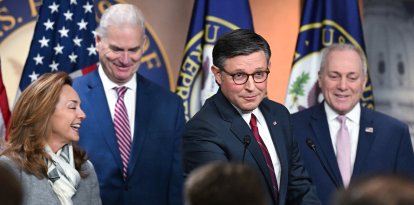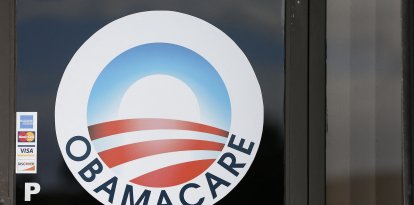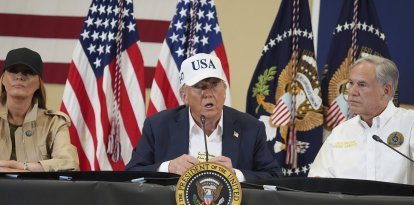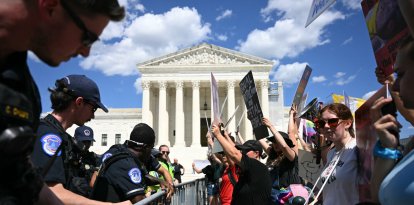The electoral battle: much more than Donald Trump and Kamala Harris
States are scrambling to reform their presidential election processes, while ongoing reforms and lawsuits bring the possibility of the Supreme Court ultimately deciding the next leader of the world's leading power ever closer.

A ballot box in Maricopa.
While it will be either Donald Trump or Kamala Harris taking office after the November elections, their rallies and interviews are not the only battleground in deciding the next leader of the world’s foremost power. Many states are working to change electoral rules in the name of security and integrity, following the events of 2020, while others seek to maintain the exceptions introduced by the COVID-19 pandemic. This situation is increasingly bringing the final decision closer to the Supreme Court.
While Democratic states focus on the electoral system—particularly the role of electors—criticizing it for disregarding the popular vote, Republicans, led by Trump, are primarily concerned with ensuring that the final result is not manipulated.
Non-citizen vote, biggest Republican fear
Conservatives' main concerns center on the possibility of non-citizens voting in states that don’t require identification, as well as two practices expanded during the COVID-19 pandemic: ballot harvesting and the use of drop boxes for mail-in voting
The Conservatives' primary concern is the potential for non-citizen voting. To address this, they have pushed for the Save Act, even tying its Senate passage to avoiding a government shutdown. In response to the 2020 election, as many as eight states have tightened voter ID requirements.
Identification is tightened in several states
In Ohio, only government-issued photo IDs are now accepted as voter identification. Arkansas has eliminated the option for voters to cast provisional ballots and later verify their identity, while also moving up the deadline for mail-in ballots to ensure they are counted on Election Day. In Idaho, a new rule has removed certain previously accepted IDs, like student IDs. However, in Montana, a court overturned the changes.
In Nebraska, 65% of voters voted to introduce mandatory photo ID in 2022. Next November 5, Nevada will follow suit by including a referendum to decide whether to approve this same measure. At the moment, the Silver State is one of 16 that do not require any form of ID to vote.
Likewise November will also be key for eight states to determine by referendum whether or not non-citizens will be allowed vote in local and state elections. Ambiguous laws in many states have allowed this to happen, particularly with the use of student IDs or driver's licenses for identification, as seen recently in Arizona. This controversy has intensified in states where driver's licenses have been issued to undocumented immigrants.
Mailboxes and vote harvesting in the spotlight
It's not the only change. Four years ago, elections came amid widespread limitations on travel and assembly, prompting states to seek special ballot alternatives to ensure voter safety. For example, Alabama and Kentucky removed restrictions on voting by mail. Registered voters in other states, such as California and Illinois, received ballots by mail. Other states such as Texas gave voters more time to vote by mail. Some even went so far as to temporarily suspend the requirement that vote-by-mail ballots be notarized.
Since then, several states are trying to repeal these and other Covid-era voting expansion methods. So far, seven states have banned or significantly limited the use of ballot boxes. Texas has included a requirement that they be supervised by an "election security officer." New Mexico requires that all mailboxes be monitored by surveillance cameras and that the recordings be kept by county clerks. Arkansas and South Dakota are more radical and approved an outright ban on their use.

























